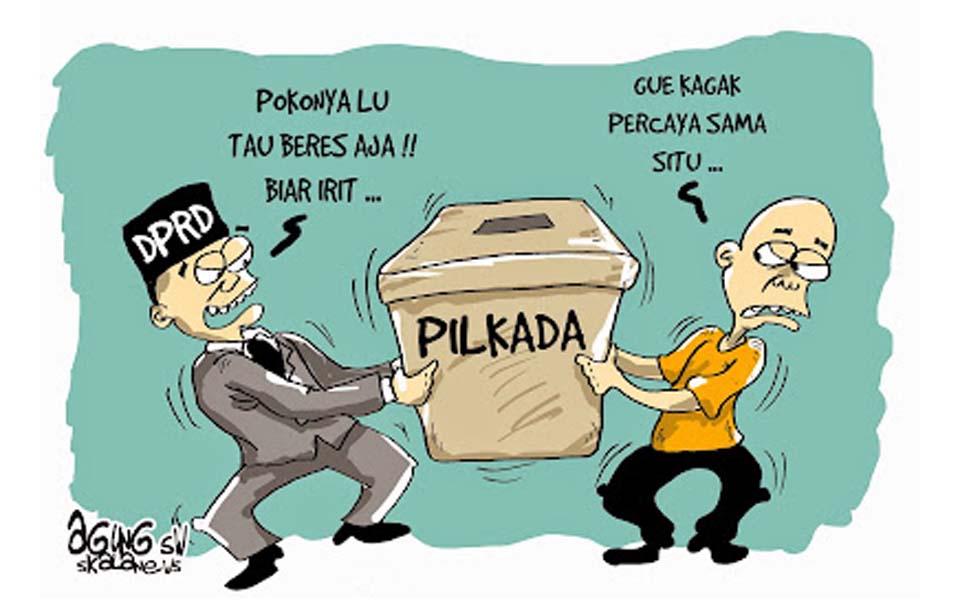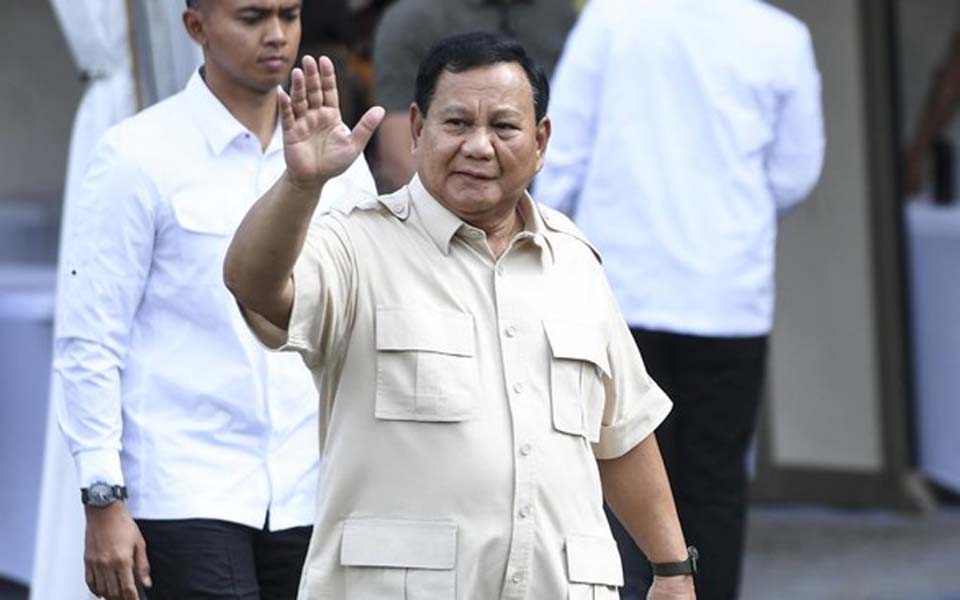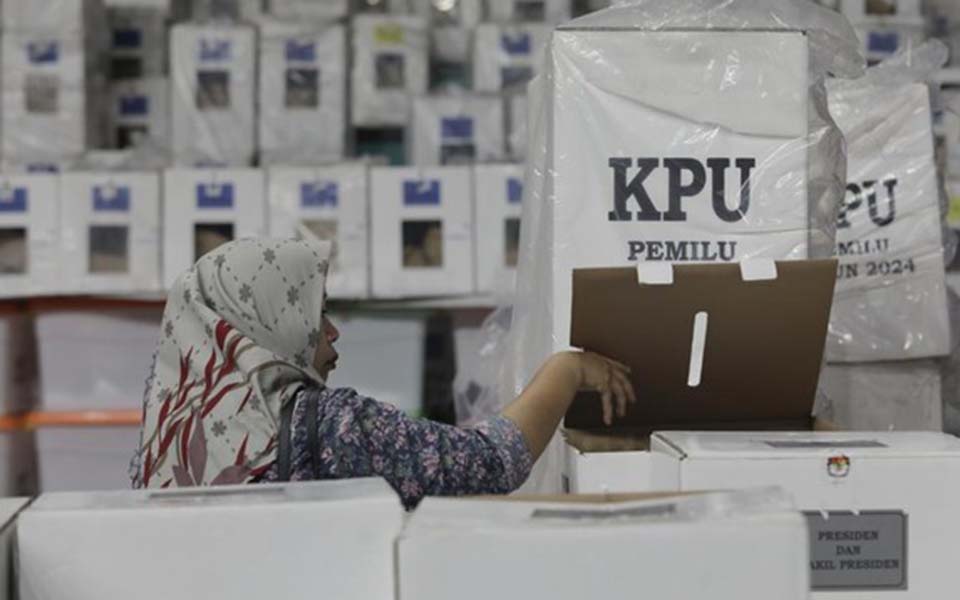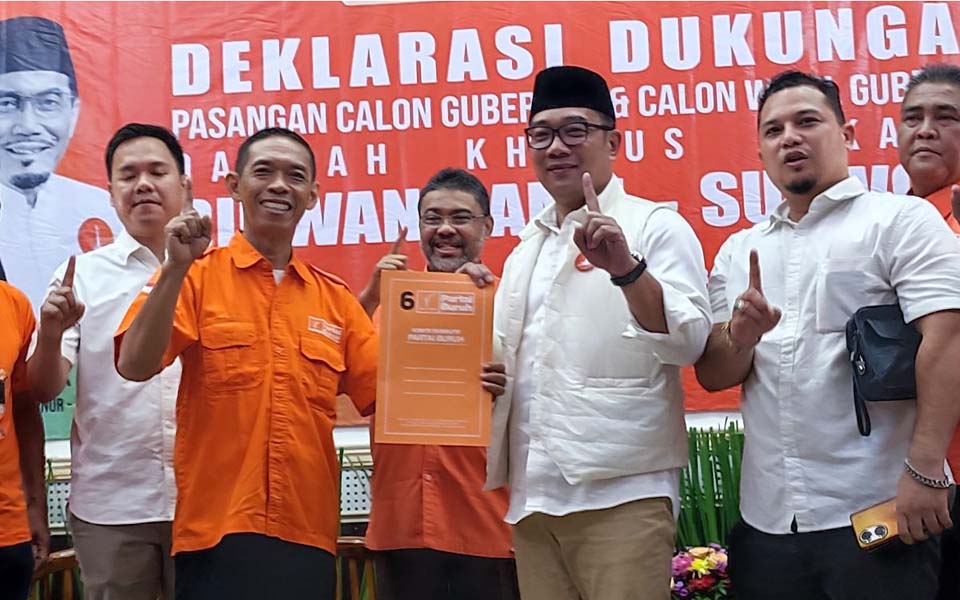Jakarta – More than half of voters are confused about the current political situation. A survey by the Soegeng Sarjadi School of Government indicates that as many as 51.45 percent of respondents have yet to make their choice of political party. Yet the 2014 legislative and presidential elections are less that a year away.
Speaking in Jakarta on Wednesday July 24, Centre for Strategic and International Studies (CSIS) senior researcher J. Kristiadi believes there are many reasons why the public has not yet made up their minds. However one of the strong possibilities is the growing levels of political apathy among the public. One indication of this is the steadily falling participate rate in the election of regional heads (pilkada). In many pilkada, the “winners” are those that don’t vote or golput.
This apathy is growing stronger because of the disintegration of the credibility of state institutions. It is as though there is no head of state in the midst of many problems that need immediate attention. All of the political parties have been hit by corruption cases, and the public’s sense of hope has been shattered.
“This could become a time bomb for democracy in Indonesia. The public has lost hope and no longer cares about its role in politics. In order to restore the 2014 elections as a victory of the ordinary people and return sovereignty back to the hands of the people, civil society, whether it is the mass media, activists as well as academics must be active. Because the state as an actor is weak and cannot be relied upon to anticipate this political apathy by the public”, explained Kristiadi.
In the Soegeng Sarjadi School of Government survey between June 3-22 covering 2,450 respondents in the 10 largest cities in Indonesia with a margin of error of 2.61 percent, it was found that 51.45 percent of respondents had yet to make a choice and 12.88 percent did not reply. The most popular political party was the Indonesian Democratic Party of Struggle (PDI-P) with 9.25 percent, followed by the Democrat Party (6.64 percent), the Greater Indonesia Movement Party (Gerindra) (6.45) and the Golkar Party (6.11 Percent). The other political parties only obtain a vote of 0-2 percent.
Political outlook
In an explanation of the results of a national telepoll by the Indonesian Youth Alliance for Change (API Perubahan) in Jakarta yesterday, it was found that a section of the public with the right to vote but who have taken a political position of not voting or golput represents a danger.
This danger is not simply a technical or administrative matter related to the voter list, but a political outlook resulting from a decline in the public’s trust of the political parties. The telepoll survey was conducted in 33 provinces with a total of 650 randomly selected respondents.
“The percentage that will golput in the 2014 elections is expected to rise again compared with pervious elections. This needs a solution”, said API Perubahan general chairperson Salman Dianda Anwar.
The survey found that if the presidential election was held now, respondents would give the largest number of votes to Jakarta Governor Joko Widodo with 20.7 percent, Gerindra Party patron Prabowo Subianto 11.2 percent and State-Own Enterprises Minister Dahlan Iskan 7.8 Percent. The golput rate would be as high as 31.5 percent.
For the legislative elections, the golput rate would be as high as 30.8 percent. The Golkar Party, which received the highest number of votes, only obtained 10.5 percent, followed by the PDI-P (8.2 percent), the Gerindra Party (6.0 percent) and the Democrat Party (5.6 percent).
The survey classified voters based on age. Golput among young people aged between 23-35 years was a high as 37.2 percent, the 36-45 year age group 36.2 Percent and the 17-22 year age group 7.0 percent.
Meanwhile for golput based on region, the highest level was in Java at 63.3 percent, followed by Sumatra (22.6 percent), Kalimantan (8.0 percent), Sulawesi (3.5 percent), Maluku and Papua (1.5 percent), and Bali, West Nusa Tenggara and East Nusa Tenggara (1.0 Percent).
Speaking separately, M. Qodari from Indo Barometer said that the declining trend in participation rates in elections represents part of an effort to find a new balance. The public has begun to view national and regional elections as something ordinary. (INA/OSA/NWO)
[Separu Pemlih Bingung – Golput Makin Jadi Sikap Politik – Kompas. 25 Juli, 2013. Translated by James Balowski.]















